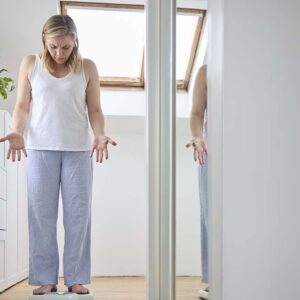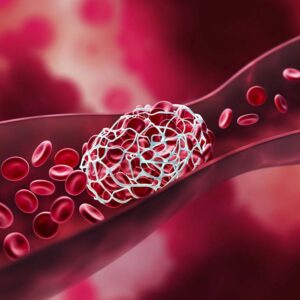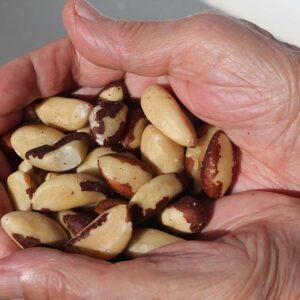
Sleep Apnea Linked to BRAIN SHRINKAGE
Some things are quick tickets to a shortened time here on Earth.
Smoking, abusing drugs, eating junk food, and chronic sleep issues all come to mind.
Sleep apnea makes the list too. At least when it goes untreated.
In fact, it’s a DOUBLE whammy for anyone who wants to live a long, healthy life. Because sleep apnea trashes your sleep AND reduces your body’s oxygen levels.
But that isn’t even the worst of it. Because research has now revealed a whole NEW threat that could send you to an early grave.
And no one saw this one coming…
You’ve probably heard of amyloid plaques before. They are protein deposits sometimes found in the brain’s gray matter.
Amyloid plaques are most often associated with Alzheimer’s disease. In some cases, the plaques appear to gum up the brain’s ability to work normally.
But they can ALSO show up in the brains of healthy, dementia-free folks.
Now a new study published in the journal, Neurology, has uncovered another disturbing link…
Researchers found that in a worrying number of cases, cognitively healthy folks with both amyloid plaques and severe sleep apnea also turned out to have hidden areas of atrophy in their grey matter.
In other words, their brains were shrinking.
You don’t need me to tell you that having less brain volume is NOT a good thing. But now we’re left with even more questions that need answers.
- Does sleep apnea trigger an increase in amyloid plaque production, leading to smaller brain size?
- Does the presence of both plaque and sleep apnea increase the risk of Alzheimer’s?
Obviously, more research is needed. But one thing we DO know is sleep apnea harms your health.
It increases your risk for high blood pressure, diabetes, heart disease, heart attack, and stroke. And it appears we can now add brain atrophy to that list.
So if you have the condition, the sooner you tackle it, the better off you’ll be.
The trouble is many folks don’t even know they have sleep apnea. You likely have the condition if you snore loudly or gasp for air during the night. And your best bet is to ask your partner if he/she observed it (or had to plug their ears to avoid the snoring).
If you suspect sleep apnea, see your doctor as soon as possible. They can order a home sleep study to diagnose or rule out the condition.
An APAP (automatic positive air pressure) or CPAP (continuous positive air pressure) machine is the best treatment for sleep apnea.
It can be challenging to learn to sleep with one. But most people get used to it with a bit of practice. And needless to say, the benefits are ENORMOUS… and may even include avoiding Alzheimer’s.
In addition, most folks with apnea are carrying around a few too many pounds. Studies have found that losing the extra weight can improve or even CURE the condition.
Avoiding alcohol, smoking, and sedative drugs can also help. And some folks find getting a bed that allows them to raise their head when they sleep reduces their apnea episodes.
P.S. Researchers say one common habit could INCREASE your sleep apnea risk by a shocking 78 percent! CLICK HERE for the details.
Source:
“Association of Sleep-Disordered Breathing and Medial Temporal Lobe Atrophy in Cognitively Unimpaired Amyloid-Positive Older Adults,” Neurology May 2023, 10.1212/WNL.0000000000207421; DOI: 10.1212/WNL.0000000000207421
Written By Dr. Scott Olson, ND
Nearly 25 years ago, failed mainstream medical treatments left Dr. Olson in constant pain – and his health in ruins. And that’s when he did something REVOLUTIONARY. He began his career in medicine – and dedicated his life to uncovering the true, underlying causes of disease.
Through his innovative medical practices in Tennessee and Colorado, Dr. Olson has helped cure countless seniors from across America of arthritis… heart disease… diabetes… and even cancer. All without risky prescription drugs or painful surgeries.
View More Free Articles
Take the SHORTER Path to Dramatically Better Health
Are you tired of fitness gurus preaching the virtues of 5 AM workouts and pushing Olympic-level training regimens? Their narrative can feel exhausting and entirely unattainable. But before you toss in the towel completely, I’ve got news that might just put a spring back into your step. A groundbreaking new study reveals that the key...
Unexpected Perks of Your Coffee Habit Revealed!
We all know that the first cup of coffee in the morning can FEEL like a lifesaver. But what if it might actually BE saving your life? A groundbreaking new study suggests that your daily coffee habit could be protecting you from not just one but multiple chronic diseases. Let’s pour over this fascinating research…...
The TRUTH About Diabetes Drugs and Brain Aging
You’ve probably seen the gushing headlines… Most say something like, “Common diabetes drug protects the brain against aging!” And let’s face it, that sounds fantastic. After all, who doesn’t want to keep their brain young and in tip-top shape? The headlines refer to the results of a new study that suggests the widely prescribed type...
Hidden Smartphone Danger Puts You at Risk
Remember when we thought cell phones were just something for young folks to obsess over? Back when we were convinced they were nothing more than a passing fad? Well, times certainly have changed. Now, most people… including many of us older folks… have jumped on the smartphone bandwagon. Heck, some of us are practically as...
Preserve Your Mobility with “Agile Aging” Exercises
Aging has a way of humbling us. You lose hair where you want to keep it—and often end up growing it where you don’t. With every passing year, your eyesight fades, and your waistline expands. And as your once quick pace begins to slow, you fear developing the dreaded “senior shuffle.” But here’s the thing....
Yes, Lazy Saturday Lie-Ins Can BOOST Your Health
Are you burning the midnight oil during the week and catching up on sleep on weekends? Well, I’ve got some news that might help you feel less guilty about those lazy Saturday mornings. A new study suggests that weekend lie-ins might be doing far more than just helping you feel refreshed. Experts say they could...
Mailbag: 7 Hidden Culprits Behind Your Weight Gain
“Why am I gaining weight, even though I am watching what I am eating?” – Battling the Bulge Dear Battling, Gaining weight when you’re not trying to is frustrating. And it just gets worse as we age… often regardless of our diet. The truth is that various factors can promote weight gain even when you’re...
Popular Artificial Sweetener Linked to Dangerous Heart Risk
Remember when erythritol was the darling of the health food world? Well, this popular sugar substitute might not be as sweet a deal as we were led to believe… A shocking new study reveals a dark side to this widely used artificial sweetener. It turns out erythritol is associated with a dangerous—and even deadly—heart risk....
Cracking the Code on Chronic Inflammation
Inflammation and obesity are the evil tag team at the heart of nearly every major disease we face—from diabetes to obesity. What starts as a normal, healthy process to fend off dangerous invaders can quickly fan into the flames of chronic inflammation… and that includes in your gut. The trouble is almost no one has...
Dreaming of Better Sleep? Your Gut Holds the Key
Do you toss and turn at night? If so, you’re not alone. In fact, if you’re a senior over 65, you join nearly 17 percent of your peers who ALSO struggle with poor sleep quality. But science has uncovered a natural supplement that not only could help you catch more Z’s but can also give...









